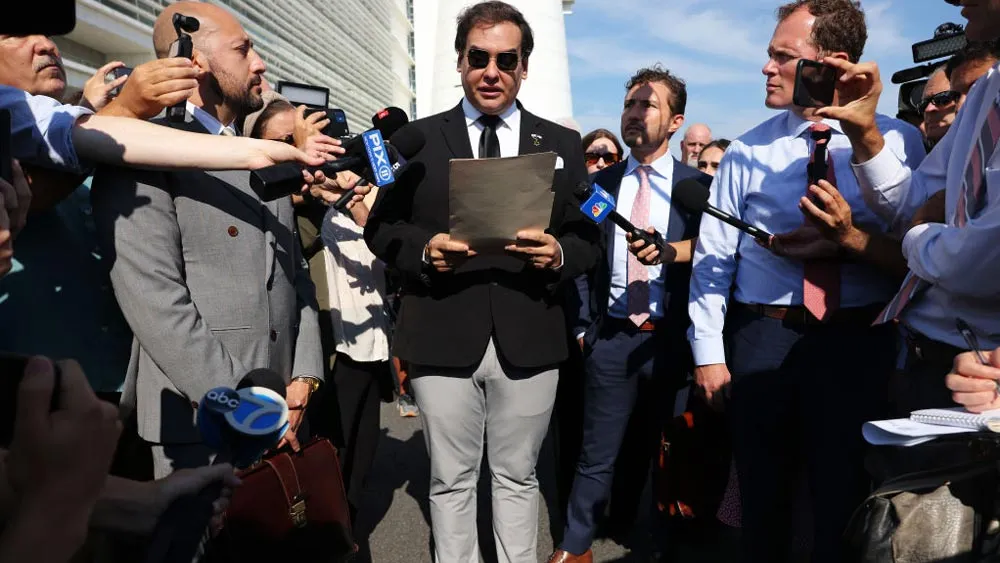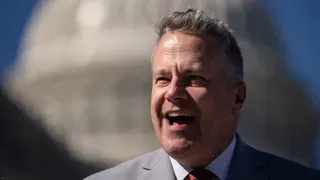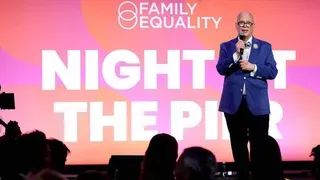December 31, 2012
Obamacare: Health Exchanges, Coming Soon
Chris Sosa READ TIME: 4 MIN.
Colds and sore backs may be a lesser problem for you come the new year.
Under the Affordable Care Act workers without employer-provided health insurance can enroll in Health Exchanges beginning Oct. 1, 2013.
These Health Exchanges will make quality health insurance available to workers without health insurance, such as the self-employed , temp and hospitality industry workers, and workers in many gay bars, restaurants, sex clubs, and bathhouses. Let us not forget the "masseurs", erotic dancers, and porn stars.
Many partnered straight workers in these fields have access to health insurance through their legal spouses, but partnered LGBT workers do not. Consequently, Health Exchanges may be especially beneficial to our communities. The Health Exchanges will be fully functional by Jan. 1, 2014. We had better start learning about them.
Florida has until February to choose between the Federal Health Exchange and a Federal-State Partnership Health Exchange, but is more likely to choose a Federal Health Exchange for both practical and political reasons. On a practical level, setting up a Health Exchange requires a great deal of work. On a political level, the GOP dominated state government would have less "ownership" of a Federal Health Exchange.
The Federal Health Exchange in Florida will offer all health plans that meet the minimum federal standards. These minimum standards, called Essential Health Benefits, include ten essential services. Unfortunately dental, vision, abortion, and gender re-assignment/confirmation surgery are not required to be included. The Federal Health Exchange will be online and will function similarly to sites like Travelocity. People will be able to enter search criteria for plans that cover domestic partners.
Subsidies to purchase a plan on the Health Exchange will be available to people with household incomes between 100 percent and 400 percent of the Federal Poverty Level, a standard measure of poverty. People may be surprised to see that an individual making $44,680 per year will be getting subsidies, particularly those with that income who consider themselves middle class. The amount of the subsidy is based on limiting personal health insurance expenses to a percent of income. Personal health insurance expenses would be limited to 2 percent of income at the 100 percent of the Federal Poverty Level, but go up to 9 percent of income at 400 percent of the Federal Poverty Level. The more money you make, the more you pay for health insurance. The subsidy will make up the difference. As the subsidies would be paid directly to the insurance company in advance, individuals will not have to "loan" money to the government. If this seems complicated, it is.
But what about people making less than 100 percent of Federal Poverty Level?
Originally, people with household incomes up to 100 percent of Federal Poverty Level would all be eligible for an expanded Medicaid; people with incomes above that would be eligible for Health Exchanges. The Supreme Court has since ruled that states can decline to expand Medicaid. At present, Florida severely restricts eligibility for Medicaid, leaving large numbers of very poor people dependent on charity and expensive emergency room health care. It is not clear what Florida will do, but it may end up being a key issue in the 2014 Governor's race.
Within the LGBT communities, three groups have a great deal at stake in changes to health care: HIV positives, transgenders/transsexuals, and health care providers.
HIV Positives
Ryan White Care (RWC) provides coverage for HIV positives without adequate health insurance. Joey Wynn, Co-Chair for the statewide Florida HIV AIDS Advocacy Network (FHAAN), estimates that about two thirds of RWC clients would be eligible for Medicaid Expansion, and up to on third would move to the Health Exchange.
For people with incomes below the Federal Poverty Level, living in Florida and on Ryan White Care, things will remain pretty much the same in 2013.
When the Health Exchange opens, everyone in Ryan White with incomes above the Federal Poverty Level will have to move to the Health Exchange because Ryan White cannot legally pay for services that another insurer would. As dental care and some other services are not covered under the Health Exchange, people in the Exchanges will still be covered by parts of Ryan White Care. Selection of plans will be complicated and people should talk to their case managers and providers. Likewise, case managers and people in the provider's offices have to learn how to talk to their clients about the Exchanges.
They will have a lot of work to do. Managing paying for healthcare appears as complex and anxiety-provoking as managing health.
According to long time HIV survivor, Anthony Johnson, "I don't have enough information. We've been given pieces of information, mostly from politicians, but we don't have the whole picture. I don't know how "Obama Care" will affect me and my health care, or how it will affect my community."
Transsexuals
As health exchanges offer multiple plans, some of these plans could offer better services to transsexual clients than others, but none are required to cover gender reassignment/confirmation surgery or removal of body hair.
According to Ellen Frank, a community activist, "transsexuality is the only birth defect that is discriminated against. Electrolysis is part of transition, an expensive part. Facial and body hair too. It's quite expensive and very necessary. You can't successfully be accepted as female if you have facial hair."
Providers
The Affordable Care Act changes how providers bill for services. Historically, some agencies have only billed one entity for services rendered. Now they will have to learn how to negotiate rates and bill multiple insurance agencies.
Similar to health care consumer Anthony Johnson, provider James Lopresti, the director at SunServe Institute, has complaints about the lack of useful knowledge.
"Most providers are in the dark about what to expect from Tallahassee, especially the Department of Health," He said. "We will discover many wrinkles in the system. But we have to start changing our system. Few people are aware of how wasteful and poorly performing our system is at present, especially because of our refusal to see the impact in cost and human misery on our (mostly) profit based health care delivery system."
Many details remain to be worked out and only so much can be covered in one article. For more information, visit www.heatlhcare.gov, and www.healthreform.org






